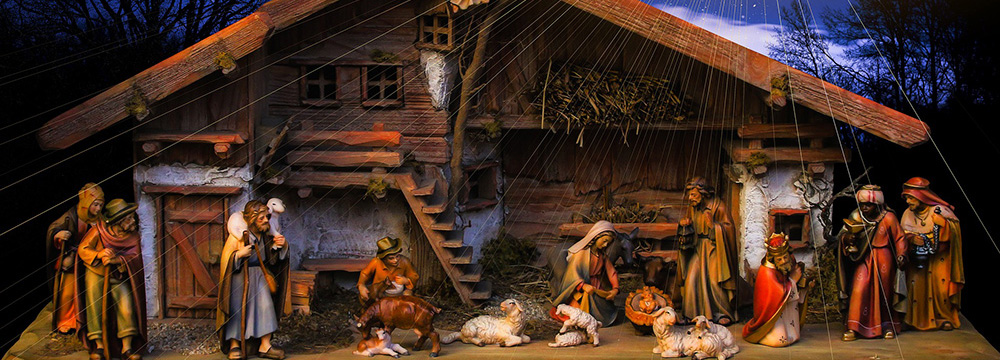The Catholic Encyclopedia states that Advent is the time in which Catholics are admonished “to prepare themselves worthily to celebrate the anniversary of the Lord’s coming into the world… make their souls fitting abodes for the Redeemer…and make themselves ready for His final coming.”
The first and third of these admonitions are familiar: to prepare ourselves for the birthday of our Lord Jesus Christ and for His second coming. The second admonition, however, too often takes a back seat in our thinking and practice. That’s unfortunate, because in a practical sense, it’s the more important admonition: without it, we cannot accomplish the other two.
Our Lord Jesus was born of the Virgin Mary and laid in a manger some 2,000 years ago. Nothing we do or fail to do can change this fact. If we fail to “prepare ourselves worthily” — if we refuse, as Ebenezer Scrooge did, to celebrate Christmas at all — we only hurt ourselves.
Nevertheless, we cannot “prepare ourselves worthily” on our own, through our own efforts, without His gracious help. When He told His apostles, “without me you can do nothing” (Jn 15:5), He did so in the context of an important exhortation: “Just as a branch cannot bear fruit on its own unless it remains on the vine, so neither can you unless you remain in me” (Jn 15:4). For this to happen we must make our souls “fitting abodes for the Redeemer.”
Jesus will come again. Either He will come again in glory to inaugurate the Last Judgment, as the creed affirms, or He will come again for each of us at the moment we die. Either of these events could take place tonight! Only God knows when, and for this coming we are to make ourselves ready.
But, again, we cannot do this on our own. We are all sinners deserving judgment, and without the help of the graces we receive in the sacraments, we cannot be certain that we will be ready to face Him when He comes. Scripture says clearly: “Who will repay everyone according to his works: eternal life to those who seek glory, honor, and immortality through perseverance in good works, but wrath and fury to those who selfishly disobey the truth and obey wickedness” (Rom 2:6-8). Having patience in well-doing is a fruit of the Holy Spirit (see Gal 5:22), a fruit we cannot bear unless we abide in him.
So, how do we “make” our “souls fitting abodes for the Redeemer”? One of the first steps is the self-examination that is such a crucial part of our Advent preparation — examination not only of our sinfulness, but to discern whether “what you heard from the beginning” continues to “remain in you” (1 Jn 2:24). So many voices from the world, the flesh and the devil bombard us every day, mostly to discourage us from holding fast to the fullness of our Catholic faith. Doubt and ridicule rise up on every side, and as we face yet another Advent, our own hearts may “condemn” us (see 1 Jn 3:19) for the number of previous Advents we’ve let slip by without adequate preparation.
The apostle John, however, gives a clear indicator of how we can: “We shall know that we belong to the truth and reassure our hearts before him in whatever our hearts condemn, for God is greater than our hearts and knows everything” (1 Jn 3:19-20). The reassurance comes if, having been changed by grace, we are able to love, not merely “in word or speech but in deed and truth” (1 Jn 3:18).
What is the best way to fulfill the three admonitions of Advent? To examine our love for one another, for as John wrote: “We love because he first loved us. If anyone says, ‘I love God,’ but hates his brother, he is a liar; for whoever does not love a brother whom he has seen cannot love God whom he has not seen” (1 Jn 4:19-20).
Marcus C. Grodi is host of the popular EWTN program “The Journey Home” and president of the Coming Home Network International.

